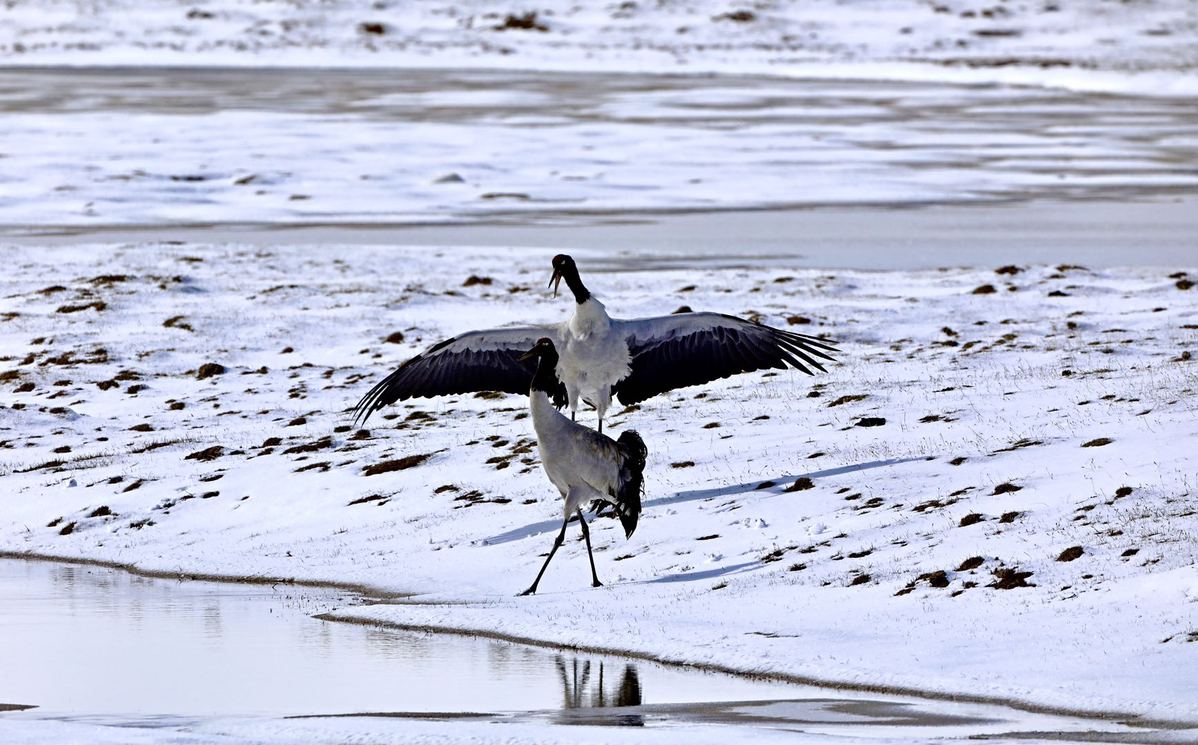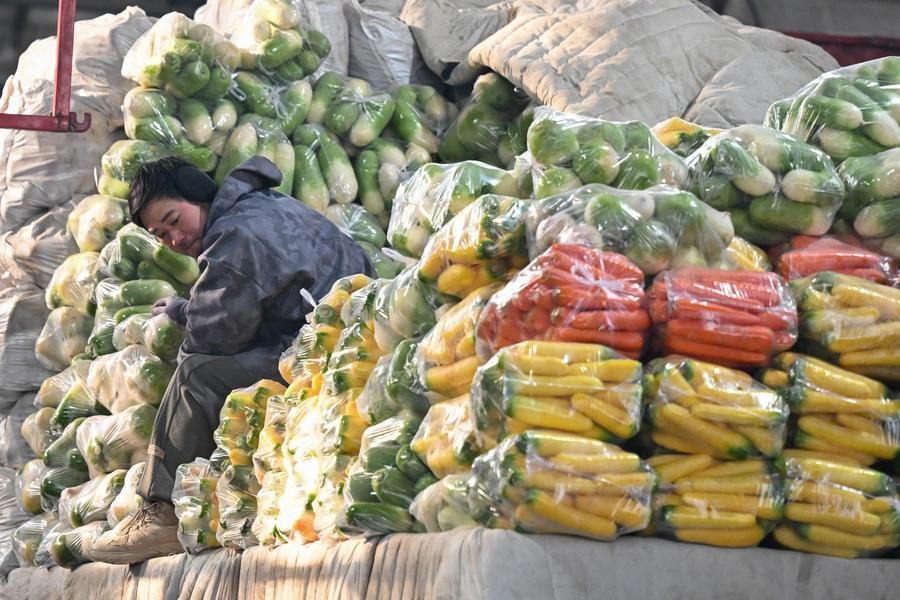Qinghai rangers rise to meet challenges


Positive results
Restoration of the Sanjiangyuan area has produced positive results over the past decade, especially since 2016 when the pilot project for the national park was launched.
According to a report by the National Development and Reform Commission in 2018, the volume of water flowing out of the province has increased annually by 6 percent and the area of grassland has expanded by 11 percent a year. Since the national park project was launched, the number of Tibetan antelope in the area has risen from 20,000 to 70,000.
Sotrin, 43, from Doujiang village, Huanghe, who has been a ranger for four years, said: "I used to see our land dying as a result of degradation. Four to five years ago, one of the rangers' main tasks was to clean garbage. We didn't even dare to drink spring water then.
"Now, the rivers and lakes have regained their purity. We don't need to take water on our patrols anymore, and I've seen flowers growing that I've never seen before."
Sotrin said that every piece of waste he has picked up and every small task he has done have been worthwhile and made him happy.
Sun, the park's deputy director said: "Their work as rangers has transformed these nomads from being pure utilizers of nature, to helping build and guard it. What impresses me most is their enthusiasm, strong sense of responsibility and pride.
"Such strength, coming from the grassroots, is the engine needed to build a legacy like Sanjiangyuan, which will be with us for a long time and will benefit everyone.
"It is important to involve the indigenous people in ecological restoration and environmental protection work at the Source of Three Rivers. We will safely be able to say that the greatest feature of Sanjiangyuan National Park is its harmonious co-existence with humans and nature. Natural resources matter, but people matter, too."
Tashi, from Jiangpang village, has a 3-year-old daughter. Every time he returns home from a patrol, she often asks him to tell her stories about the rangers. She used to ask him why he and others risked so much to be rangers.
He replied: "Because the grassland is our home, and animals are our roots. We rely on each other."
- Nobel winner speaks to youth in China: what makes a great research question?
- China's first reusable liquid rocket test offshore platform set for operation
- Chinese mainland reaches 2.29m high-value invention patents in IP quality pursuit
- Xi says China's high-quality development to provide more opportunities for cooperation with Brazil
- China Coast Guard rescues 13 Filipino sailors in the South China Sea
- Xi holds phone talks with Lula




































